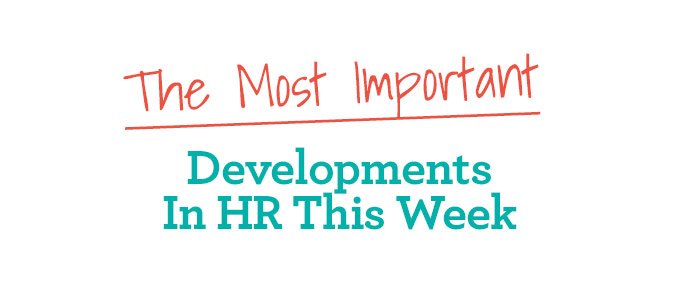
Workers in 18 States Get Minimum-Wage Increases
On Jan. 1, new minimum wage laws went into effect in 18 states, impacting some 4.5 million workers (and their employers) nationwide. The rate hikes range from just $0.04 in Alaska to $1 in Maine. What does it mean for HR? Payroll changes for all 4.5 million minimum-wage workers affected by the new laws. The Wall Street Journal


How You Promote People Can Make Or Break Company Culture
A Great Place To Work, the company whose employment surveys inform the Fortune 100 Best Companies to Work For ranking, recently surveyed 400,000 U.S. workers and found that when people believe promotions are managed effectively, they’re more than twice as likely to give extra effort at work and plan a long-term future with their companies. How can you improve the effectiveness of your promotions? Clarify the aspirations of employees, encourage and advocate for employees to apply for open positions, have full transparency about hiring decisions and circle back with employees who didn’t get the job. Harvard Business Review


Five Things We’ll Be Arguing About In 2018
Experts are predicting the unemployment rate will fall even further in 2018, below 4 percent. What it means for HR is a tighter job market, fewer applicants for open positions, and a more difficult time finding the perfect hire. And when you do find that star, he or she will have more clout to bargain for higher wages. Washington Post


Blockchain: What Is IT And How Is HR Using It?
Blockchain, Bitcoin’s virtually unhackable, unalterable digital decentralized ledger of cryptocurrency transactions, is being picked up by other industries, including HR. How can it be used? In the hiring process, for one. Blockchain access to academic credentials and certifications will reduce the time hiring managers and recruiters spend verifying this info. HR Dive


17 Online Classes That Teach The Skills You Need For The Modern Workforce – All For Just $11 Today










